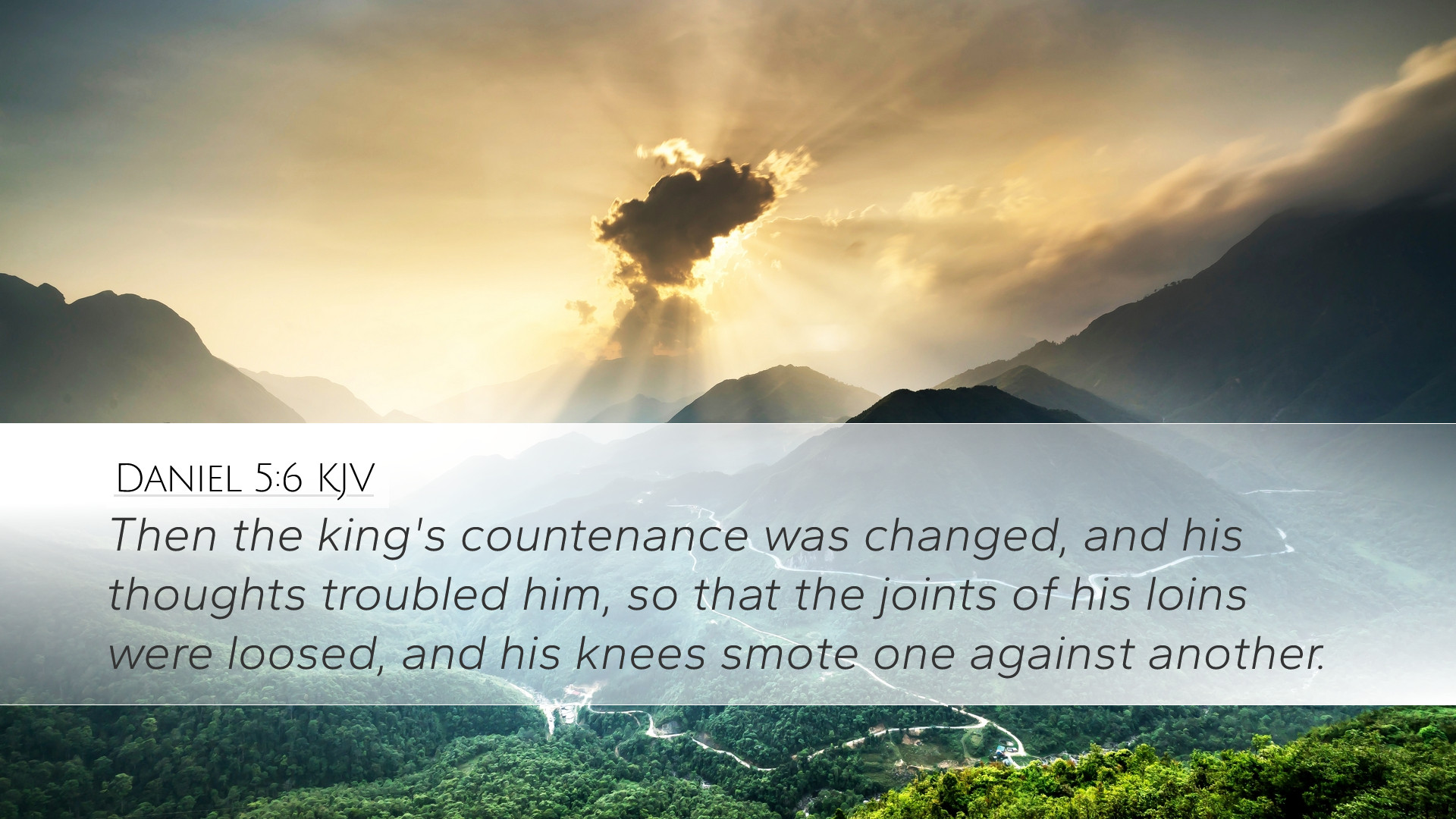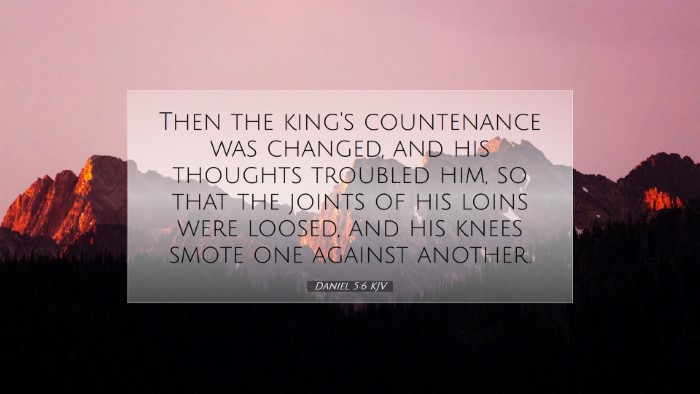Commentary on Daniel 5:6
Verse: "Then the king’s countenance was changed, and his thoughts troubled him, so that the joints of his loins were loosed, and his knees smote one against another." (Daniel 5:6)
Overview
Daniel 5:6 occurs within the context of the remarkable scene of Belshazzar's feast, where the king's blasphemous actions lead to a divine judgment illustrated by a mysterious handwriting on the wall. This verse expresses the immediate psychological and physical reaction of Belshazzar upon witnessing this portent. It serves as a narrative pivot that shifts the atmosphere from festivity to terror. This commentary seeks to unpack the theological, historical, and psychological dimensions embedded in this verse, drawing insights from various public domain commentaries.
Theological Insights
Divine Judgment: This instance vividly illustrates the concept of divine judgment and the inevitable impact it has on human arrogance and pride. Belshazzar’s initial state of revelry is abruptly transformed into fear, culminating in a stark reminder of God’s sovereignty over earthly affairs. Matthew Henry notes, “When God’s hand is lifted up, the heart of man is cast down.” This moment punctuates the gravity of disregarding God's authority.
The Power of God: Adam Clarke emphasizes the illustration of God’s omnipotence, which transcends human understanding and authority. The king's reaction underscores the insurmountable power of God to unsettle human pride and to remind us of our frailty before divine majesty. Belshazzar, once confident and powerful, becomes a picture of vulnerability when confronted with God's message.
Historical Context
Understanding the historical context behind Daniel 5 is vital. Belshazzar, the last king of Babylon, is portrayed as engaging in a feast, which indicates certainty of security and dominance. Albert Barnes explains that this was the last night of Babylon's glory, illustrating the profound irony of the situation. While he indulges in festivities, a divine judgment is being pronounced against him, signaling the imminent collapse of his empire.
Psychological Dimensions
Fear and Shock: The psychological trauma Belshazzar experiences is instructive. The phrase “his countenance was changed” signifies a deep inner turmoil, a transformation from a facade of strength to a display of fear. This represents a common human experience when confronted with the supernatural or the consequences of one’s acts.
Physical Manifestation of Fear: The description that "the joints of his loins were loosed" and "his knees smote one against another" captures the visceral reaction of fear. Matthew Henry describes it as “an expression of the utmost horror.” The physical responses reflect a deeper spiritual awakening, as he begins to comprehend the significance of the writing and what it portends for him and his kingdom.
Lessons for Pastors and Theologians
This moment of fear reveals critical lessons for pastors and theologians regarding the nature of human pride in the face of divine authority. Here are vital reflections to consider:
- Humility before God: The narrative reminds believers to maintain a posture of humility, understanding the fragility of human power compared to God’s sovereignty.
- Awareness of Divine Presence: Belshazzar’s ignorance of God in the midst of extravagance serves as a cautionary reminder to remain aware of God's presence and authority in daily life and ministry.
- Response to Divine Warnings: Just as God intervened in Belshazzar’s life, so too does He call each of us to heed His warnings and re-align our lives according to His will.
Conclusion
Daniel 5:6 offers a profound glimpse into the nature of human existence when juxtaposed with divine authority. Belshazzar's experience serves as a sobering reminder that no amount of earthly power can shield one from God's hand of justice. As believers, we are called to reflect on the lessons borne from this narrative—to recognize our place before God, to live in humility, and to respond promptly to His call for repentance and righteousness.


